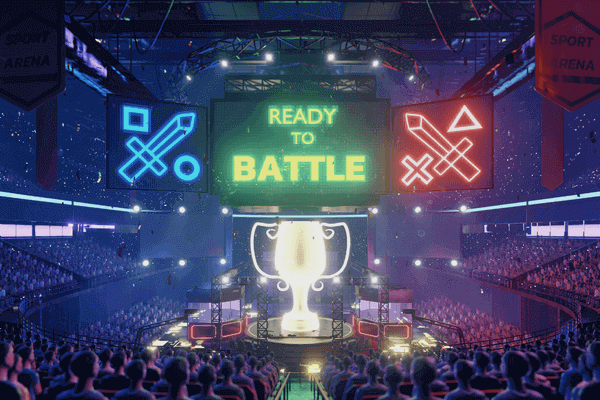Blockchain technology has begun to be used by smaller esports organizations to distribute prize pools, although the larger tournament organizers have not yet embraced the technology. Several amateur esports event organizers have begun experimenting with blockchain technology to run competitions and award prize money. But, an investor cautions against expecting to see it in the major leagues just yet.
Video games are used in a kind of organized competition known as “esports,” or electronic sports. Sometimes referred to as “esports athletes,” players compete for cash either alone or in teams. According to Dave Harris, managing director of the esports investment business Guinevere Capital, blockchain is now being employed in amateur gaming events.
But, he believes it would take more time before major events and competitive competitions start to think about implementing the technology. The major game publishers, as always, are the kingmakers in esports. “There are undoubtedly a number of places this technology can or is being used in esports, but it will take time for mass adoption into the mainstream titles and events,” he added.
According to Ivy Fung, general manager of the Esports Players League (ESPL), blockchain technology is a good fit for allocating prize pools. The Singapore-based startup runs a blockchain-powered platform that transfers prize money into winners’ digital wallets using digital assets including nonfungible tokens (NFTs) and crypto tokens.
Fung claims that the usage of blockchain removes obstacles like cross-border transfer fees levied by conventional banks, making it much simpler to distribute the prize pool. The awards, however, are far from the millions of dollars in cash awarded at major esports competitions.
Although Harris thinks that Web3 and blockchain have a crucial role to play in esports, he also believes that in order for future advances to truly catch the public’s interest, they will need to go outside the box.
“I’m not convinced this is really going to change the dial,” he added. “There may be more effective methods of leveraging this technology to measure and display results.” In particular, when NFTs are involved, gamers have a love-hate relationship with cryptocurrency. According to a survey conducted in October by Coda Labs, traditional gamers gave cryptocurrencies and NFTs ratings of 4.5 and 4.3 out of 10 respectively.
Last year, the French gaming behemoth Ubisoft Entertainment came under fire for its NFT project Quartz. As a result, the business later changed its mind about incorporating NFTs into its games. According to research made public by Exploding Topics, the esports sector will be worth $1.62 billion worldwide in 2024.
Related Posts





